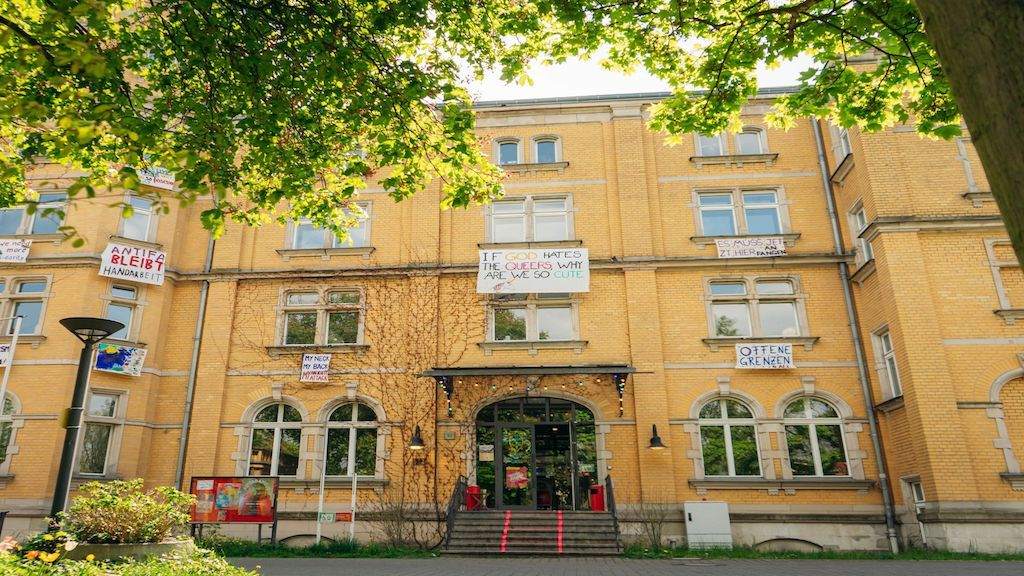Veröffentlicht
Wed, Feb 14, 2024, 14:45
- December's closure came as a "major blow both emotionally and financially," one member told RA.

32 BIPOC members of Berlin cultural centre Oyoun are facing uncertain futures since its closure in December.
Oyoun was forced to shut after the Berlin Senate pulled its €1 million of public funding over allegations of antisemitism, triggered by an event hosted by a Jewish group supportive of the Boycott, Divestment and Sanctions (BDS) movement.
The fallout has impacted the livelihoods of 32 BIPOC members of the LGBTQIA+ community, some of whom held contracts with Oyoun until 2025. Seven members are migrants unable to return to their countries of origin because of socio-political instabilities. They were given visas to work in Germany on the basis of their employment and freelance work with Oyoun.
Speaking to Resident Advisor, one member (who chose to remain anonymous) said "the whole situation is just nerve-wracking." They said they've struggled to pay rent since the centre's closure—which came as a "major blow both emotionally and financially"–and it's been difficult to find work in a climate currently fuelling "all forms of discriminations."
Returning to their country of origin, they added, "isn't an option" as it would mean facing "psychological violence from the current regime's far-right ideologies," which is a threat to their progressive views and sexual orientation.
Another anonymous member told RA that they've also been struggling. "Living in a state of displacement and facing the constant struggle of visa applications and showing that we have enough money to reside in a country in order to continue our essential work, perpetuates a vicious cycle," they said. "It's a precarious situation that many of us find ourselves trapped in."
They continued: "In times of unchecked violence and rising racism worldwide, I seek safety and solace. At Oyoun, we've painstakingly created such a space through care and critical thinking. However, being uprooted from that home suddenly feels incredibly disorienting."
Some people in the 32-strong group have been offered short-term monthly grants by the government to survive until April. But Oyoun's CEO, Louna Sbou, told RA that beyond this point, it will become difficult to secure jobs in the arts because some "cultural institutes have become prejudiced about who they hire" and are potentially screening employees' stances on Palestine.
"This isn't only unacceptable but also dangerous because it puts people who worked at Oyoun under general suspicion and as we've already seen—at risk of being cancelled," Sbou said. She added that the challenge of finding work is "generally more difficult for BIPOC people and in Germany's current climate, even more difficult for being considered part of a space like Oyoun, which centres Global South, de-colonial and migrant perspectives."
According to one anonymous source, the Berlin Senate recently commissioned a private non-profit organisation called Neue Soziale Plastik to compile a secret dossier blacklisting people in the arts with a pro-Palestine stance. The source said they know several members of the Cultural Senate who are aware of the dossier and that Oyoun is "highly likely" to be on the list as it's the "only publicly funded art institution in Berlin that has frequently and explicitly hosted pro-Palestinian groups."
Shortly after Oyoun's funding was pulled, the Berlin Senate introduced an anti-discrimination clause requiring recipients of public funding to comply with the IHRA definition of antisemitism. But last month, following considerable backlash, the clause was scrapped, citing legal concerns. It's unclear if this will affect the decision regarding Oyoun's funding.
Watch our recent news video on the clause and its impact on Berlin nightlife.
Photo: Nat Gass